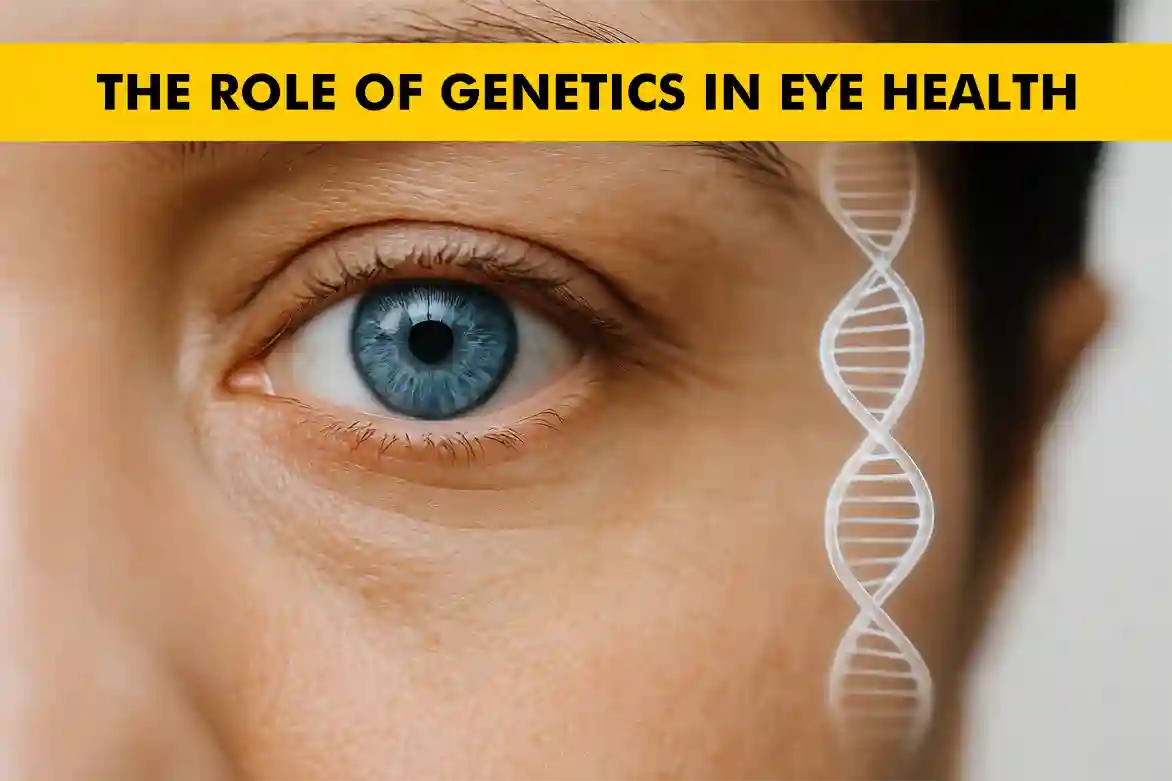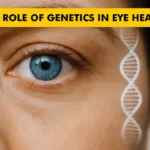The health of your eyes is influenced by a variety of factors, including genetics. Understanding how genetics affect eye health can provide valuable insights into potential risks and preventive measures. In this blog, we will explore the role of genetics in eye health and what you should know to keep your vision sharp and clear. By examining common genetic eye conditions, the influence of family history, and the potential benefits of genetic testing, you can be better prepared to take proactive steps in managing your eye health. Additionally, we will discuss how advancements in genetic research are paving the way for innovative treatments and therapies. This knowledge not only empowers you to make informed decisions but also encourages a proactive approach to maintaining optimal eye health throughout your life.
Common Genetic Eye Conditions
Several eye conditions are known to have a genetic component.
- Glaucoma: This condition involves increased pressure in the eye, which can damage the optic nerve and lead to vision loss. It often progresses slowly and can be managed with early detection and treatment.
- Age-related Macular Degeneration (AMD): You must be wondering how family history affects the risk of age-related macular degeneration. AMD affects the macula, the part of the retina responsible for sharp central vision. It is a leading cause of vision loss in older adults and can be influenced by genetic factors.
- Retinitis Pigmentosa: A group of inherited disorders that cause progressive retinal degeneration, leading to night blindness and loss of peripheral vision. It can eventually result in complete blindness.
- Cataracts: Characterized by clouding of the eye’s lens, cataracts can lead to blurred vision and are often age-related. Genetic predisposition can increase the likelihood of developing cataracts earlier in life.
- Leber Congenital Amaurosis: This rare genetic eye disorder is present from birth and leads to severe vision impairment or blindness. It is caused by mutations in specific genes that affect the retina’s function.
- Stargardt Disease: An inherited form of macular degeneration that typically begins in childhood or adolescence, leading to progressive vision loss. It is caused by mutations in the ABCA4 gene.
Genetic eye conditions can manifest at different stages of life, from childhood to old age. Understanding the genetic basis of these conditions can help in early diagnosis and management.
How Genetics Influence Common Eye Conditions
Genetics play a crucial role in determining the likelihood of developing certain eye conditions. For example, mutations in specific genes can increase the risk of developing glaucoma or AMD, and these genetic mutations can be inherited from one or both parents. Additionally, genetic variations can influence the severity and progression of these conditions, affecting how early symptoms appear and how rapidly they progress. Research has shown that individuals with a family history of certain eye diseases are more likely to develop these conditions themselves, underscoring the importance of understanding your genetic background. Discussing your genetic predispositions with your healthcare provider can lead to more personalized monitoring and preventive strategies. Furthermore, genetic counseling can provide insights into the potential risks for future generations, helping families make informed decisions about their eye health.
Role of Genetics in Determining Eye Health
Family history plays a crucial role in identifying potential eye health issues, as it can provide valuable insights into your genetic predisposition to certain conditions. If you have close relatives who have been diagnosed with genetic eye disorders, it is highly recommended to undergo regular eye examinations. These check-ups can help detect any early signs of eye conditions, allowing for timely intervention and management. Additionally, genetic testing, when advised by your healthcare provider, can offer a deeper understanding of your genetic makeup and the specific risks you may face. By being aware of your family’s eye health history, you and your healthcare provider can develop a personalized plan to monitor and manage your eye health more effectively, potentially preventing or mitigating the impact of hereditary eye diseases.
Genetic Testing: What Can It Tell You About Your Eyes?
Genetic testing offers crucial insights into your potential risk for developing various eye conditions by examining your DNA for specific genetic mutations linked to these diseases. This process allows healthcare providers to pinpoint genetic anomalies that may predispose you to certain eye disorders. By identifying these mutations early, genetic testing facilitates timely diagnosis and the creation of personalized treatment plans tailored to your unique genetic profile. Additionally, it aids in making informed decisions about preventive strategies to manage or mitigate risks. Beyond its practical applications, genetic testing can also provide reassurance by offering a clearer understanding of your genetic predispositions, helping you and your healthcare provider to take proactive steps in safeguarding your eye health.
Impact of Genetics on Response to Glaucoma Medications
- Genetics plays a significant role in determining how individuals respond to glaucoma medications.
- Specific genetic variations can influence the metabolism of drugs, impacting their effectiveness and leading to different treatment outcomes.
- These genetic differences may cause some patients to experience better results with certain medications, while others may require alternative treatments.
- Understanding these genetic factors allows healthcare providers to:
- Tailor treatment plans to align with each patient’s unique genetic profile.
- Enhance the effectiveness of glaucoma management by selecting the most suitable medications.
- Monitor patients more closely for potential side effects or lack of efficacy.
- Personalized treatment strategies can lead to improved patient outcomes and more efficient management of glaucoma.
Preventive Measures and Lifestyle Choices
- Maintain a healthy diet rich in antioxidants to support eye health.
- Protect your eyes from harmful UV rays by wearing sunglasses or hats.
- Avoid smoking to reduce the risk of developing eye conditions.
- Engage in regular physical exercise to improve overall health and eye function.
- Ensure adequate sleep to allow your eyes to rest and recover.
- Limit screen time and take regular breaks to reduce eye strain.
- Stay hydrated to keep your eyes moist and comfortable.
- Schedule regular eye check-ups to monitor eye health and detect issues early.
- Stay informed about your genetic risk to tailor preventive strategies effectively.
Emerging Genetic Therapies for Eye Diseases
Advancements in genetic research have led to the development of promising genetic therapies for eye diseases. Gene therapy, for example, aims to correct or replace faulty genes responsible for genetic eye conditions. This involves introducing healthy copies of genes into the cells of the eye, potentially restoring normal function and preventing further deterioration. While still in the experimental stages, these emerging therapies offer hope for the future treatment and potential cure of genetic eye diseases. Researchers are optimistic that with continued study and clinical trials, these therapies could become widely available, providing new options for patients who currently have limited treatment choices.
Conclusion
Understanding the role of genetics in eye health is essential for proactive vision care. By recognizing genetic risk factors, undergoing appropriate testing, and making informed lifestyle choices, you can take control of your eye health.
Stay informed and work closely with your healthcare provider to ensure the best possible outcomes for your vision.
FAQs
Genetics can provide significant insights into the likelihood of developing eye diseases, but they are not the sole determinant. Environmental factors and lifestyle choices also play a crucial role.
To determine if you are at risk for AMD, consider genetic testing and regular eye exams, especially if you have a family history of the condition.
Not all forms of glaucoma are inherited, but genetics can contribute to the risk.
Lifestyle changes, such as a healthy diet, regular exercise, and avoiding smoking, can help mitigate the risk even if you have a genetic predisposition to eye disease.
Genetic testing can offer detailed information about your risks and help guide preventive measures.
Treatments for inherited eye diseases vary, including medications, lifestyle adjustments, and emerging genetic therapies. Consult with your healthcare provider for personalized advice.





